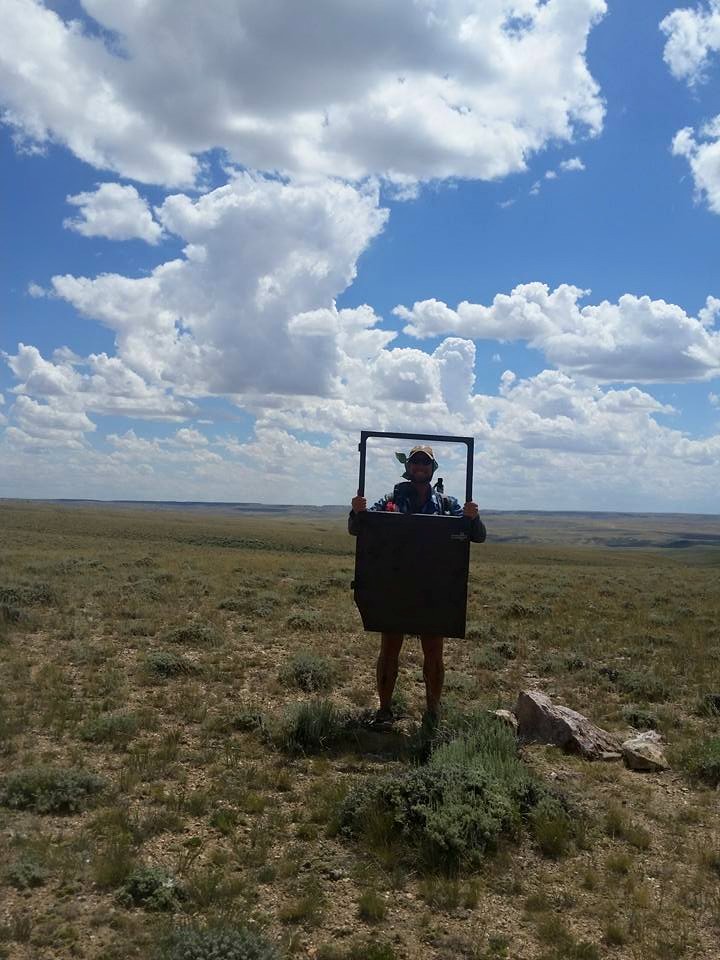There’s a term we use in the hiking/backpacking world called Leave No Trace (LNT). The message itself is pretty simple. Don’t let your disrespect for an area ruin it for others who may come behind you. Every user of public space needs to think of themselves as an ambassador. Setting the bar high, we become conscious of how our impacts will be received by the next traveler who finds this area. There’s a reason people flock to places like Joshua Tree and Yosemite. These are areas where the spirit of the wild is highlighted. It’s the polar opposite of an area ravaged by humans. There’s a reason nobody takes vacations in places like Hoboken, New Jersey. Most of these ethics are common sense; don’t litter, leave what you find, respect wildlife. Things you should have been taught as a child if your parents weren’t heathens. Don’t take a pee in the community pool…that kind of common sense. As a traveler, part of the enjoyment we receive from discovering a new place comes from the feeling that it’s unspoiled. Seeing the flotsam and jetsam from previous visitors not only ruins your experience, but lets others think it’s acceptable to act this way. Why would others want to keep a place looking nice if everyone else is thrashing it?
The message is pretty simple. When venturing out into the wilds, users are encouraged to think about the impact their presence has and look for every way to minimize it such that no trace of their passing is imprinted on the land. Being that our wilderness areas are a minuscule percentage of the overall land mass of North America, and that more and more visitors are seeking their own experiences in them, what one person does matters. Big time. It only takes one person littering to desecrate a wild area. One person carving their name on a tree, or building unnecessary rock stack cairns to force other users to see the casual scars left by users who came before them. Heading out to walk among the trees and mountains can recharge your spiritual and emotional batteries quickly…seeing rubbish and hearing someone blast music from portable speakers can do just the opposite.
Here’s a few ethics I follow that incorporate LNT practices into my everyday van dwelling existence.
1. Respect the locals
Breezing into a new town in your van, you’re a stranger in a strange land. To some folks your presence will be welcome; a novel and interesting view into an alternative lifestyle. They may even be aware of the resurgence in vehicle living and be curious when they spy your tiny house on wheels, but they may also resent you. Being stuck in one place, maybe working a job they don’t like, and experiencing the frustration many modern people have can breed resentment. Seeing you parade through town and then open up your vehicle in the parking lot can cause some frustration. I try to keep my doors closed unless I’m at a trailhead parking lot outside of town. I don’t like flaunting my freedom unless someone comes up to talk to me.

2. Don’t make a mess
You wouldn’t believe how many people in vans I see littering. I saw one lady dump her old seat cushion in a 24 Hour Fitness gym parking lot. I’ve seen guys flick cigarette butts on the ground, sweep out trash onto the street, and change their oil without a pan. We may not have curbside trash collection, but for crying out loud…there are places to dump your refuge. I keep a plastic grocery bag full of trash that I empty in the trash at every gas station I fill up at. Bonus karma for those who pick up the trash left behind by others.

3. Dumping waste
Since we don’t have a blackwater tank, when our gray water tank is ready to be emptied, I’m not concerned with finding an official RV waste treatment station to empty it. Our little 6-gallon gray water tank contains only toothpowder residue, biodegradable soap and all the water we use to clean our dishes. We run a stainless steel mesh filter on our sink drain to filter out food particles since food waste in gray water is the main culprit behind odor. It’s not the most pleasant slurry, but not a biohazard either. At rest stops, I simply cart my jug into the toilet and dump it in. When out in the woods, I make sure to be 200 feet (or farther) from ANY water sources before filtering it through the soil. I certainly don’t dump it in residential neighborhoods where the smell may bother folks. Check online for each states guidelines regarding gray water, but be prepared to be confused. In my opinion, as long as you’re only dumping gray water, and are 200+ feet away from a water source, the earth will do what it’s done forever and filter all liquid as it passes through the soil.
Any soap, even something like Dr. Bronner’s can contaminate water sources. We always empty our jug at least 200 feet away from any body of water. Just because it says biodegradable on the package doesn’t mean your soap won’t leave an impact in water sources. Technically EVERYTHING is biodegradable given enough time…even motor oil.

4. Rotate camp spots
Most people don’t pay attention to much, but having a vehicle parked in front of their house for multiple days is something almost anyone will notice. Especially if you’re driving a large van. Public streets are a common treasury for all, but nothing makes homeowners resent us more than seeing our big freedom machines parked for multiple days in front of their house. Like wilderness camping, dispersing your campsites allows each area to not be overwhelmed by your presence.

5. Keep stickers to a minimum
This is obviously a personal preference, but we don’t have stickers on our van. I’d love to wear my heart on my van sleeve, but it’s a dead giveaway that a rig isn’t a tradesman’s van. Stickers draw attention, and it’s not much of a leap for folks to equate that vehicle covered with National Park stickers with homeless dirtbags. I keep my sticker collection inside the van on the fridge door, away from judgmental eyes.
Conclusion
As a traveler, I highly encourage others to check out the Leave No Trace principles listed at https://lnt.org/learn/7-principles. Camping and traveling on durable surfaces, minimizing campfire impacts, planning ahead…these are all wilderness ethics that transfer well to all aspects of your life. Being a good citizen only takes a moment of consideration, so please check out the principals before you head out for a life on the road.





